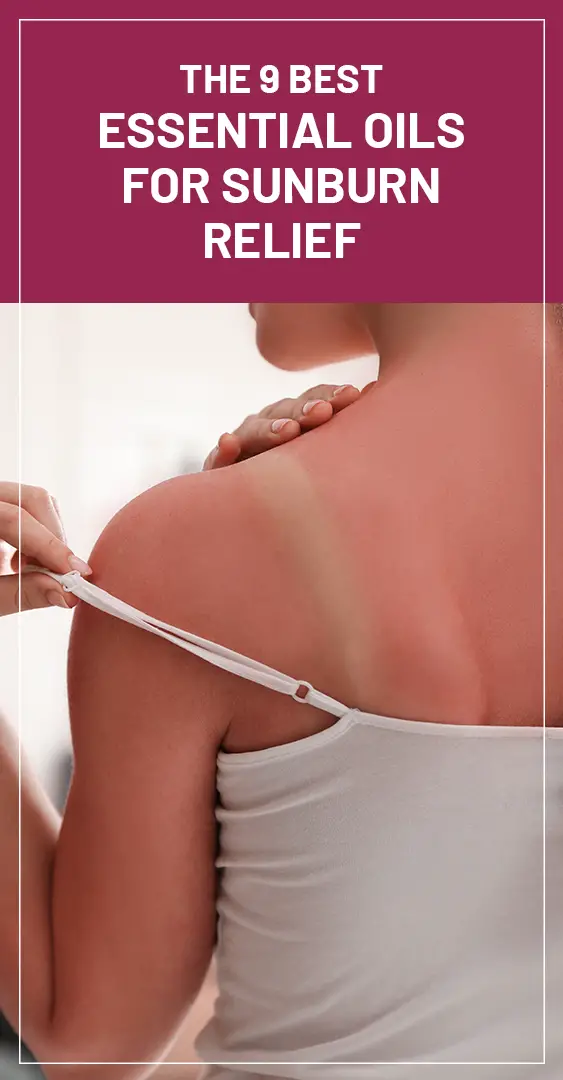
Important: This article is for informational purposes only. Please read our full disclaimer for more details.
What is Sunburn?
Sunburn is damage to the skin caused by overexposure to the sun’s ultraviolet (UV) rays. Sunburn can cause pain, redness, inflammation, and blisters. In severe cases, sunburn can lead to more serious health problems like heat stroke or dehydration.
While there is no surefire way to prevent sunburn, there are some things you can do to lower your risk. Wear sunscreen with an SPF of at least 15, seek shade during the midday hours when the sun’s rays are strongest, and wear protective clothing like hats and long-sleeved shirts.
If you do get sunburned, there are some essential oils that can help soothe the pain and inflammation.
1. Lavender Oil
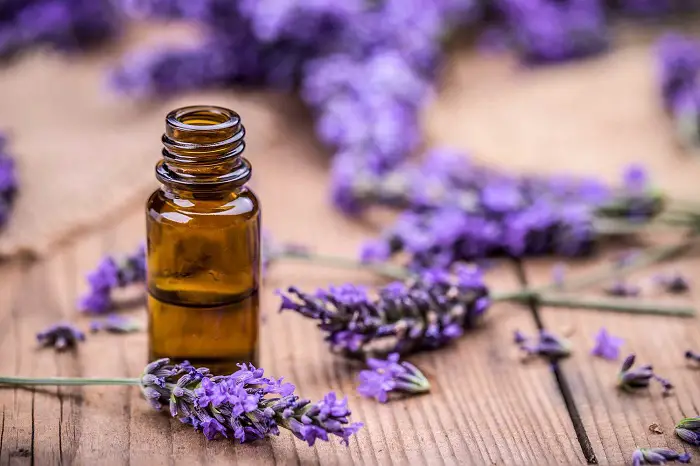
Lavender oil has both anti-inflammatory and analgesic properties, making it an ideal treatment for sunburn. It can also help to speed up the healing process.
To use, dilute lavender oil with a carrier oil like jojoba or coconut oil and apply it to the affected area. [1]
[ Recommended: How to Use Aloe Vera for Sunburn? ]
2. Peppermint Oil

Peppermint oil can also help to relieve pain and inflammation associated with sunburn. In addition, peppermint has a cooling effect that can provide some relief from the burning sensation.
To use, add a few drops of peppermint oil to a cool bath or make a compress by soaking a cloth in peppermint tea.
[ Recommended: How To Use Coconut Oil For Sunburn Relief ]
3. Chamomile Oil
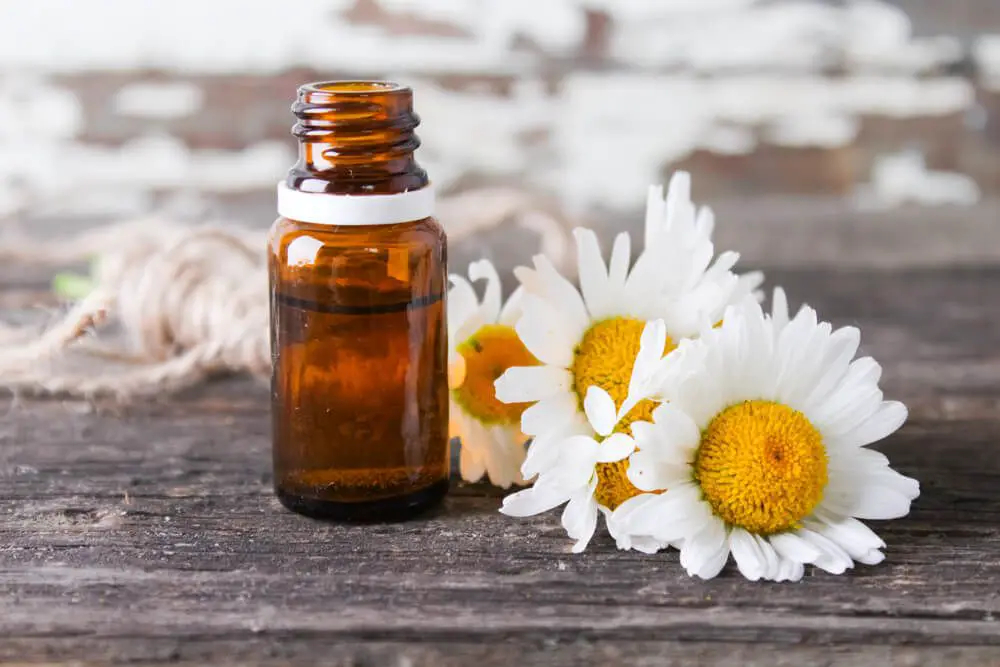
Like lavender and peppermint, chamomile oil has both anti-inflammatory and analgesic properties. Chamomile can also help to soothe the skin and promote healing.
To use, add a few drops of chamomile oil to a cool bath or make a compress by soaking a cloth in chamomile tea.
[ Recommended: How to Use Apple Cider Vinegar for Sunburn ]
4. Vitamin E Oil
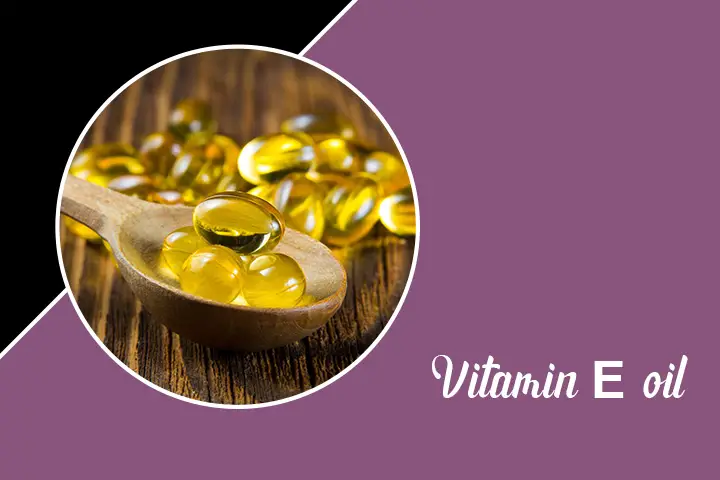
Vitamin E is an antioxidant that can help to protect the skin from damage caused by UV rays. It can also help to reduce inflammation and speed up the healing process.
To use, apply vitamin E oil directly to the affected area. You can also take vitamin E supplements orally.
[ Recommended: Can You Tan With Sunscreen ]
5. Tea Tree Oil
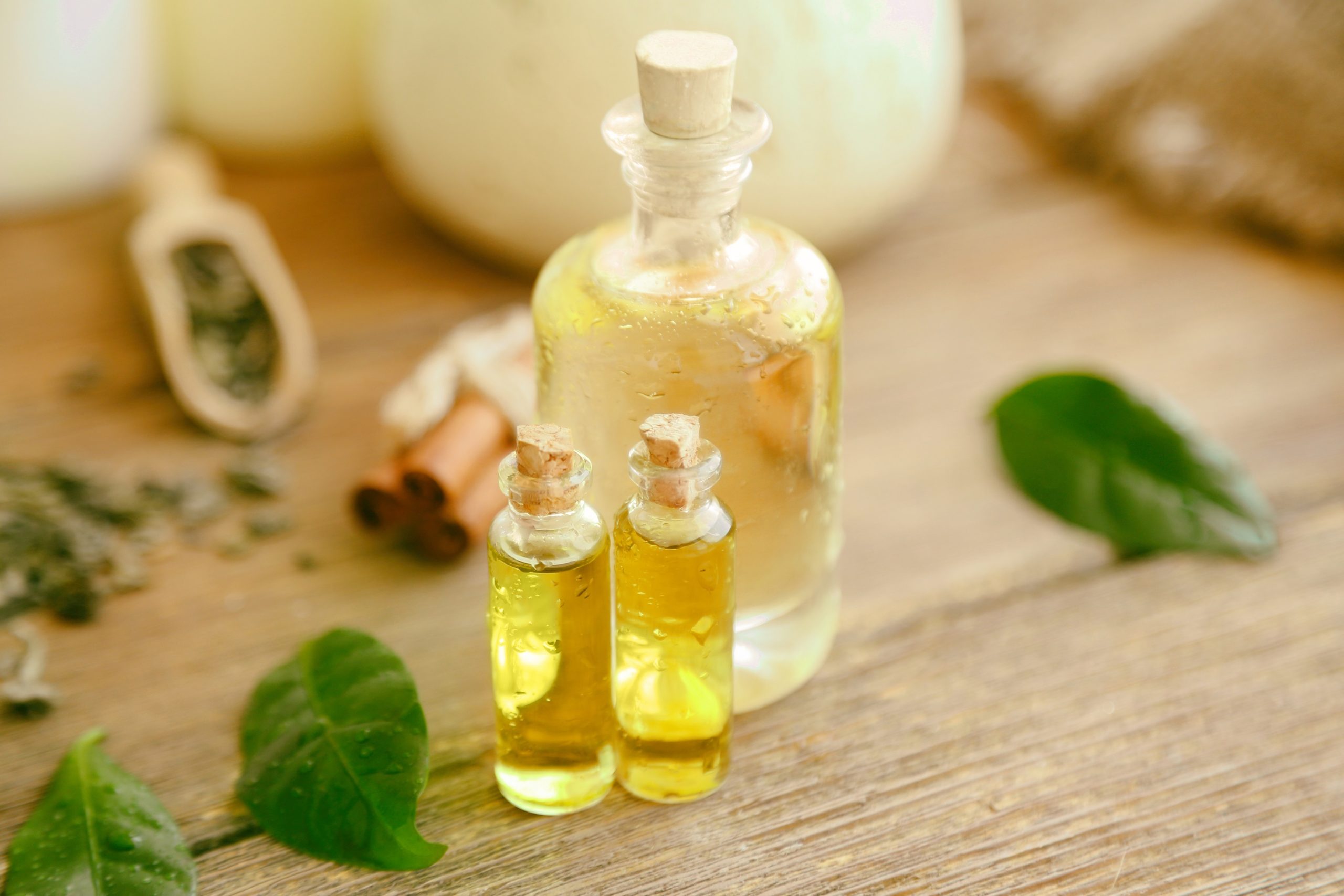
Tea tree oil has antibacterial and anti-inflammatory properties that can help to treat sunburn. It can also help to prevent infection and speed up the healing process.
To use, dilute tea tree oil with a carrier oil like jojoba or olive oil and apply it to the affected area. [5]
6. Eucalyptus Oil
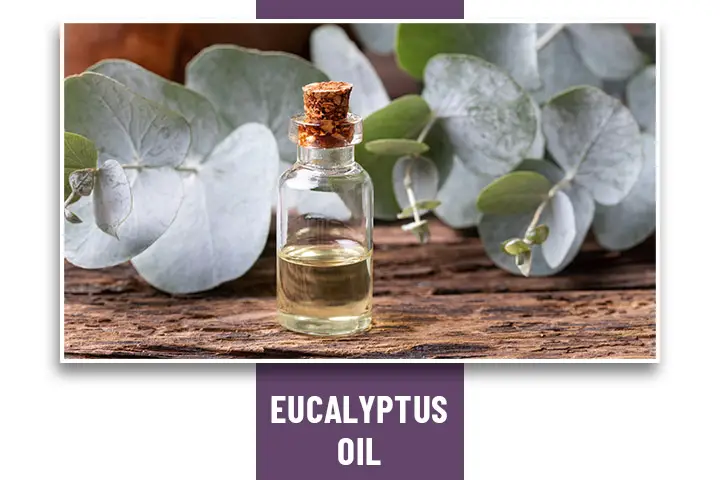
Eucalyptus oil has both anti-inflammatory and analgesic properties, making it an ideal treatment for sunburn. It can also help to ease the pain and promote healing.
To use, add a few drops of eucalyptus oil to a cool bath or make a compress by soaking a cloth in eucalyptus tea.
7. Vitamin C Essential Oil
Vitamin C is an antioxidant that can help to protect the skin from damage caused by UV rays. It can also help to reduce inflammation and promote healing.
To use, apply vitamin C oil directly to the affected area. You can also take vitamin C supplements orally.
8. Marigold Essential Oil
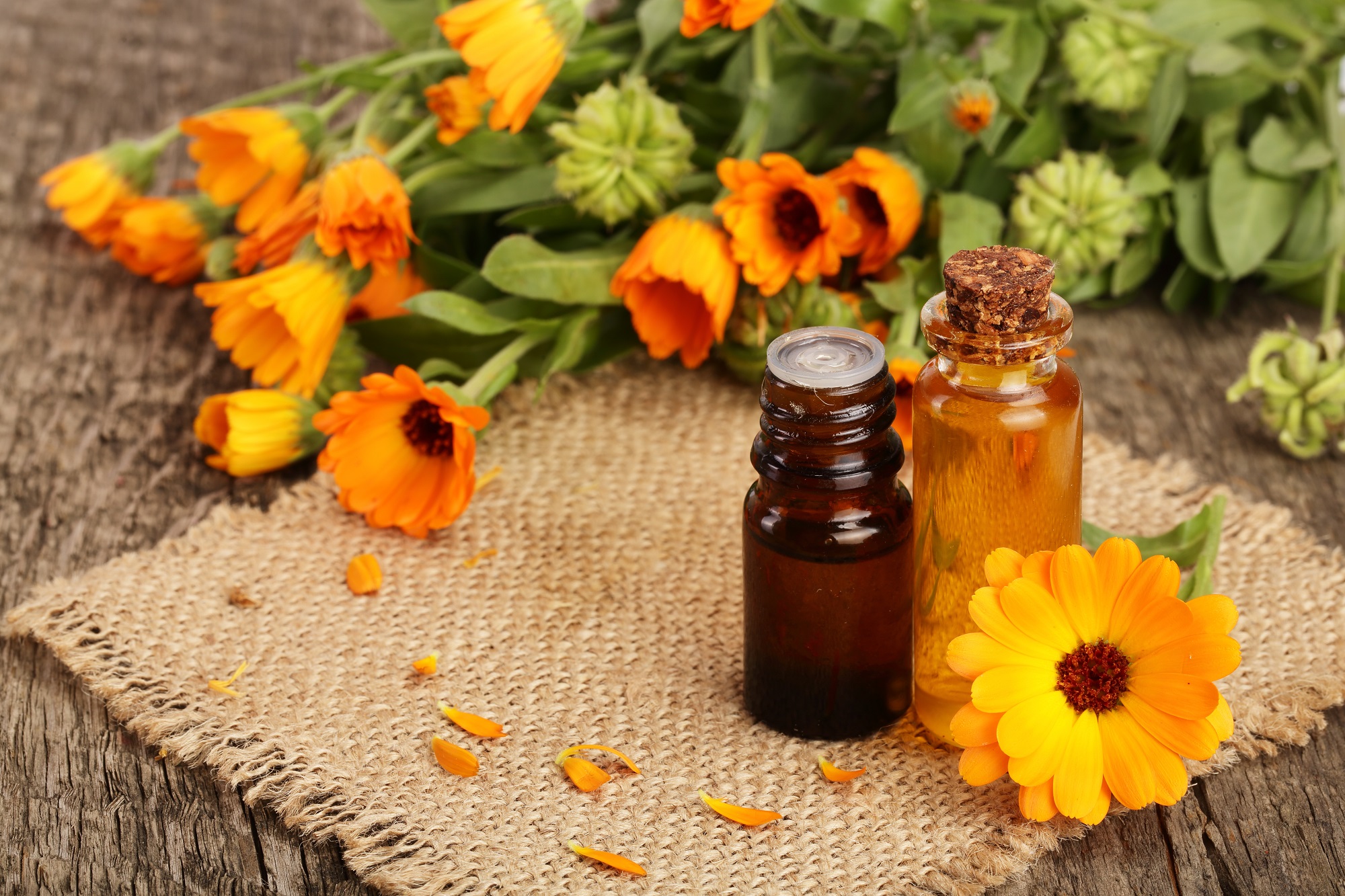
Marigold oil has both anti-inflammatory and analgesic properties, making it an ideal treatment for sunburn. It can also help to soothe the skin and promote healing.
To use, dilute marigold oil with a carrier oil like olive or coconut oil and apply it to the affected area.
9. Geranium Essential Oil
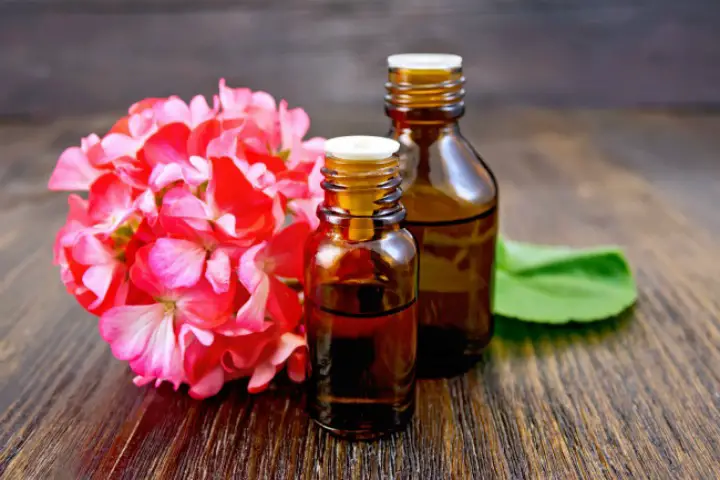
Geranium oil has both anti-inflammatory and analgesic properties, making it an ideal treatment for sunburn. It can also help to soothe the skin and promote healing.
To use, dilute geranium oil with a carrier oil like jojoba or coconut oil and apply it to the affected area. [9]
How to Avoid Sunburn?
There is no surefire way to prevent sunburn, but there are some things you can do to lower your risk.
- Wear sunscreen with an SPF of at least 15.
- Seek shade during the midday hours when the sun’s rays are strongest.
- Wear protective clothing like hats and long-sleeved shirts.
When to Visit a Doctor?
Most sunburns can be treated at home, but you should see a doctor if you have severe burns or if you develop any of the following symptoms:
- Blisters
- Swelling
- Fever
- Chills
- Nausea or vomiting
- Dehydration
If you develop any of these symptoms, it’s important to seek medical attention as soon as possible.
Caution: Essential oils are potent and should be used with caution. Do not apply them directly to the skin. Always dilute them with a carrier oil like jojoba or olive oil before use. If you have sensitive skin, make sure to test the oil on a small area first. If you experience any irritation, discontinue use immediately. Pregnant women and children should avoid using essential oils unless under the supervision of a healthcare professional.
If you do get sunburned, use these essential oils that can help soothe the pain and inflammation. But keep in mind that no every essential oily may suit your skin, so make sure to test it on a small area first. And most importantly, don’t forget to stay hydrated and avoid spending too much time in the sun in order to prevent future sunburns.
Thank you for reading!
You Might Also Like:
- 10 Essential Oils for Pain Relief: How To Use It?
- Why Should You Wear Sunscreen? The Importance for Every Skin Type
- Weight Loss Exercises – 15 Effective Exercises to Lose Weight Easily
- The 8 Best Abs Exercises for Beginners
- 5 Simple Exercises to Strengthen Your Weak Ankles
